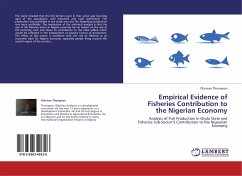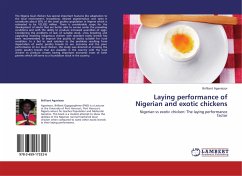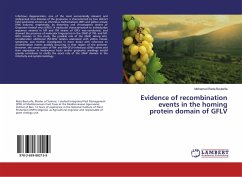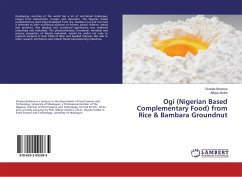The study revealed that the fish farmers were in their active age (working age) of the population, well educated and male dominated. Fish production was profitable in the study area but the fingerlings production was more profitable. The implication of the statistical analysis is that the size of the fisheries sector in Nigeria economy has an impact on the size of the economy, over and above its contribution to the value added which would be reflected in the employment of primary factors of production. The effect of this nature is consistent with the role of fisheries as an economic base for Nigeria economy, especially people living around the coastal region of the country.
Bitte wählen Sie Ihr Anliegen aus.
Rechnungen
Retourenschein anfordern
Bestellstatus
Storno








